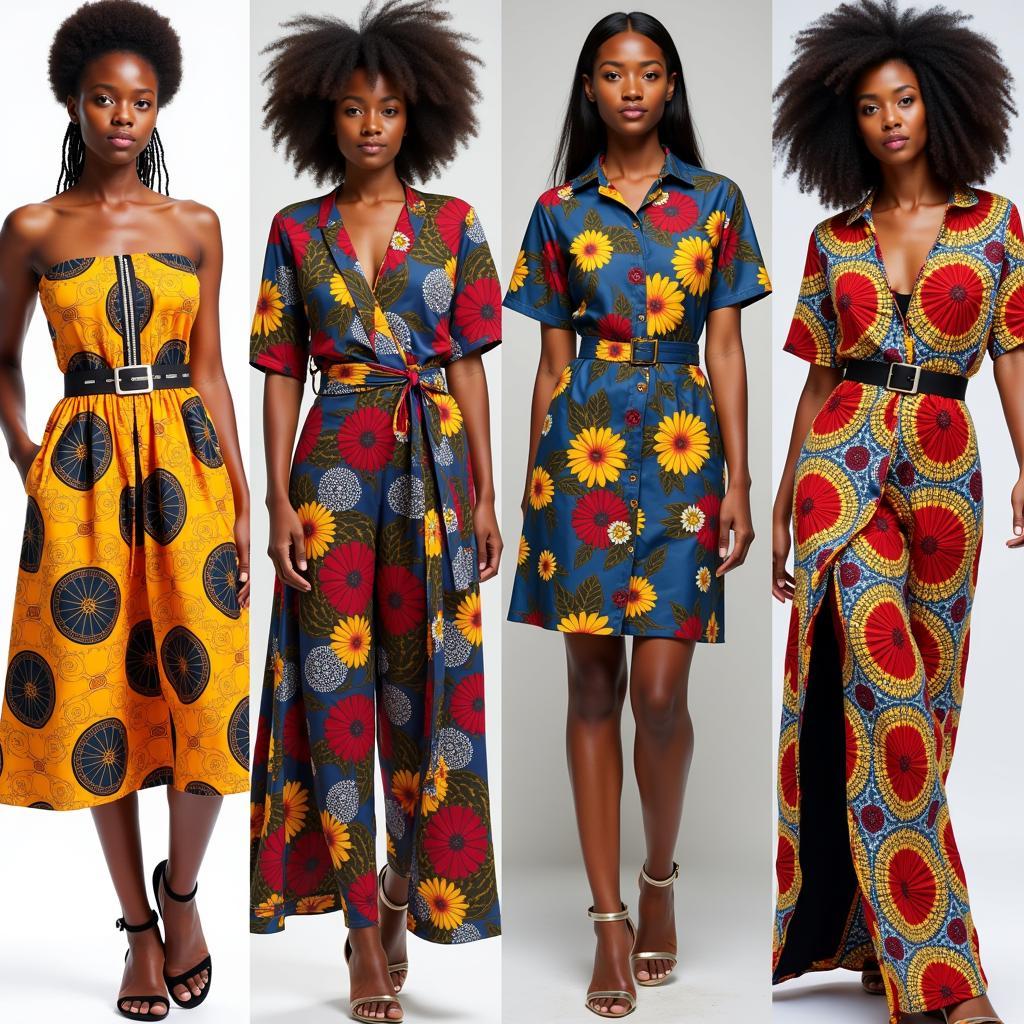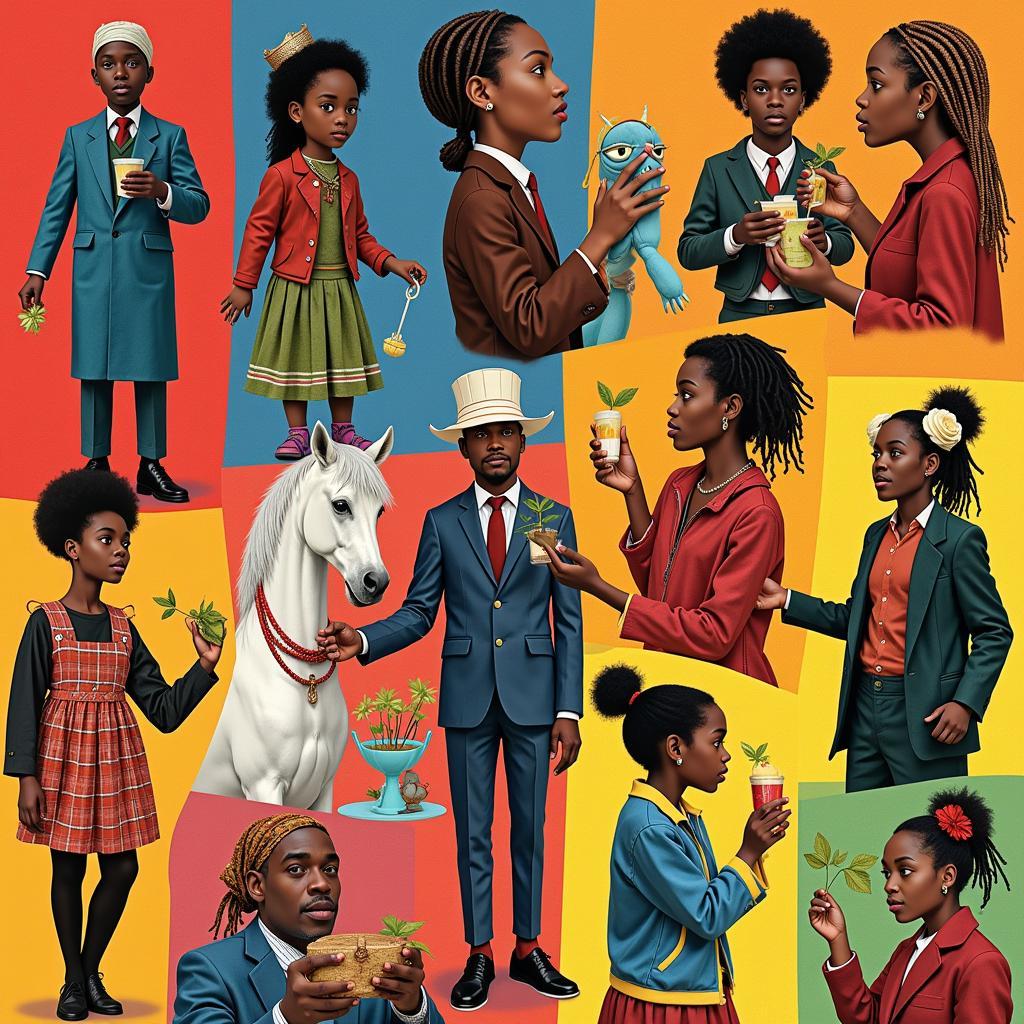African Festivals in Guyana: A Celebration of Heritage and Culture
Guyana’s rich cultural tapestry is woven with threads from Africa, brought over centuries ago by enslaved peoples. This vibrant heritage is kept alive through a variety of African Festivals In Guyana, offering a window into the traditions, music, dance, and culinary delights of the African diaspora. These festivals are not just celebrations, but powerful reminders of resilience, community, and the enduring spirit of African culture.
Emancipation Day: The Heart of African Festivals in Guyana
Emancipation Day, celebrated on August 1st, is arguably the most significant of the African festivals in Guyana. It marks the abolition of slavery in 1834 and is a time for profound reflection, remembrance, and rejoicing. Across the country, communities come alive with vibrant parades, traditional drumming and dancing, and storytelling that echoes the struggles and triumphs of their ancestors. Food plays a central role in Emancipation Day celebrations, with traditional African-Guyanese dishes like cook-up rice, metemgee, and conkie taking center stage. These dishes, passed down through generations, are a testament to the rich culinary heritage preserved within the community.
The significance of Emancipation Day extends beyond mere celebration. It’s a day to acknowledge the enduring impact of slavery and to reaffirm the commitment to equality and justice. It’s also a time for education, with many events focused on sharing historical knowledge and cultural understanding.
Exploring the Rhythms and Flavors of Other African Festivals in Guyana
While Emancipation Day is the cornerstone of African cultural expression in Guyana, several other festivals and events throughout the year contribute to the vibrant tapestry of African heritage. Kwanzaa, celebrated from December 26th to January 1st, is a relatively newer addition to the calendar but has gained increasing popularity. It focuses on seven core principles: Umoja (Unity), Kujichagulia (Self-determination), Ujima (Collective Work and Responsibility), Ujamaa (Cooperative Economics), Nia (Purpose), Kuumba (Creativity), and Imani (Faith). Each day of Kwanzaa is dedicated to reflecting on one of these principles, reinforcing their importance within the community.
Guyana’s vibrant African heritage is also expressed through regular cultural events and performances organized by community groups and organizations. These gatherings often feature traditional drumming, storytelling, and dance, providing a platform for both seasoned artists and emerging talents to share their skills and keep the traditions alive. These smaller-scale events provide opportunities for intergenerational connection, ensuring the cultural heritage continues to thrive.
Why Experiencing African Festivals in Guyana is Unforgettable
Immersing oneself in African festivals in Guyana offers a unique and enriching experience. It’s a chance to connect with a vibrant community, witness the power of cultural preservation, and learn about a history that has shaped the nation. The pulsating rhythms of the drums, the vibrant colors of traditional clothing, and the delicious aromas of African-Guyanese cuisine all combine to create an unforgettable experience.
“African festivals in Guyana are a powerful reminder of the strength and resilience of the human spirit,” says Dr. Anika Ashanti, a prominent historian specializing in the African diaspora. “They are a testament to the enduring legacy of African culture and its profound impact on Guyanese society.”
Conclusion: Embrace the Spirit of African Festivals in Guyana
African festivals in Guyana offer a powerful and moving celebration of heritage and culture. From the solemn remembrance of Emancipation Day to the vibrant expressions of Kwanzaa and other community events, these festivals offer a unique opportunity to connect with the rich tapestry of African traditions in Guyana. Experiencing these celebrations provides a deep appreciation for the resilience, artistry, and cultural richness of the African diaspora in Guyana.
FAQ
- When is Emancipation Day celebrated in Guyana? Emancipation Day is celebrated on August 1st.
- What is the significance of Kwanzaa? Kwanzaa celebrates African heritage and culture, focusing on seven core principles.
- What are some traditional foods eaten during Emancipation Day? Cook-up rice, metemgee, and conkie are popular dishes.
- Where can I find information about upcoming African festivals in Guyana? Check local community centers and cultural organizations.
- What is the best way to experience African festivals in Guyana? Attend community events, participate in celebrations, and engage with the local culture.
- What is the significance of drumming in African-Guyanese culture? Drumming plays a central role in traditional music, dance, and spiritual practices.
- How have African traditions influenced Guyanese culture? African traditions have significantly impacted Guyanese music, dance, cuisine, and storytelling.
Need More Information?
For further assistance and information regarding African festivals in Guyana, please feel free to contact us.
Contact Us:
Phone Number: +255768904061
Email: kaka.mag@gmail.com
Address: Mbarali DC Mawindi, Kangaga, Tanzania
We have a 24/7 customer service team ready to assist you.



